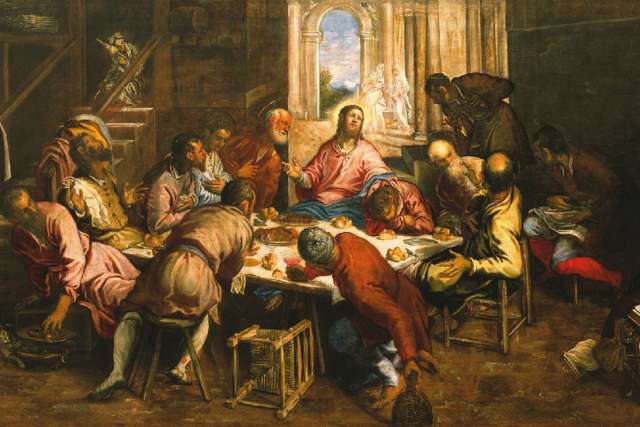Some respond to this challenge by making changes in their lives, but others prefer to be rid of the troublesome one altogether. The wicked in Wisdom’s example have two goals: they want to put the man and God to the test — if he is as close to God as he implies, then God will save him. But the death of the righteous man is not enough for these characters, for they want to destroy who and what he is. As they pounce on their prey with torments and insults, they want to demolish his gentleness, patience, inner peace and trust in God. Feeling vindicated in their wickedness, they can continue on their dark path content that the righteous man and righteousness itself are frauds.
God does not immediately ride to the rescue, but later on in the Book of Wisdom, the author triumphantly insists that the wicked delude themselves. The death of the righteous is an illusion — they are in the hands of God and no real harm can come to them despite outward appearances. Those who are moral and spiritual examples in our society have a tough time of it. To be sure, they are sometimes the targets of crazed assassins or fanatics. It is far more common, however, that others engage in character assassination and detraction. Some eagerly root around in a person’s life looking for dirt and human weaknesses, and will not rest until they find it. Others impugn their victim’s motives. They attempt to deface the image of God in the victim. As in Wisdom’s assurance, nothing that is good is ever lost, and those that try to live an upright and inspiring life are always in the hands of God and their cause lives on.
The root sin of humanity is “self ” — the way in which we make ourselves the centre of the universe and strive for dominance over others. The competitiveness and greed built into our societies and economic systems ensure that people try to amass wealth, possessions and power at the expense of others. James proposes humility, mercy, generosity and righteousness before God as the solution to the problem. We see many suffer greatly for want of shelter, food and the basics of life while the majority lives in comparative luxury. The violence, injustice and competitiveness in the world around us is a reflection of our inner state — if we want a different world, we need to change. There are no quick-fixes or shortcuts.
The disciples ate and drank with Jesus and were with Him every day. They saw His miracles and heard His teachings, but for the most part, they did not understand them. They were rather clueless when it came to understanding what Jesus was really about. He talked continually of suffering, the cross, humble service and the rigourous demands of discipleship. And what were they doing? Squabbling over which one among them was the greatest! We can only imagine Jesus’ sense of disappointment. They were unchanged by His teachings, for they were still competing for prestige and glory.
His example of the child was not sentimental in nature. Children had no status or honour in ancient society, and were vulnerable to an extreme. The disciples were commanded to treat a child — the lowliest in society — as if it were Jesus Himself.
These words are even more poignant after the sad, bleak, image of a dead refugee child lying on a beach shocked the world. In the eyes of God there are no distinctions between people, and so it must be with us. All are to be treated with the same dignity, decency and respect, regardless of the label they wear. It is a lesson that humanity — even Christians — have found very difficult to understand fully and accept. Pope Francis has been adamant in his call for a Church of humility, service and poverty. Will we heed the call to true discipleship?


